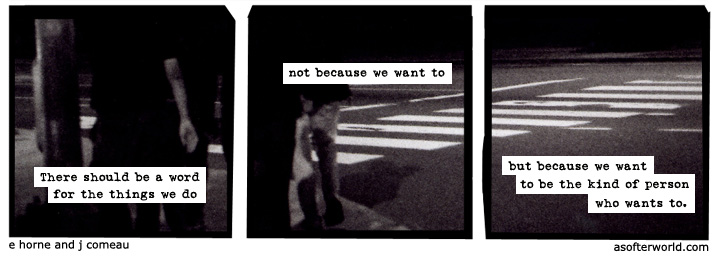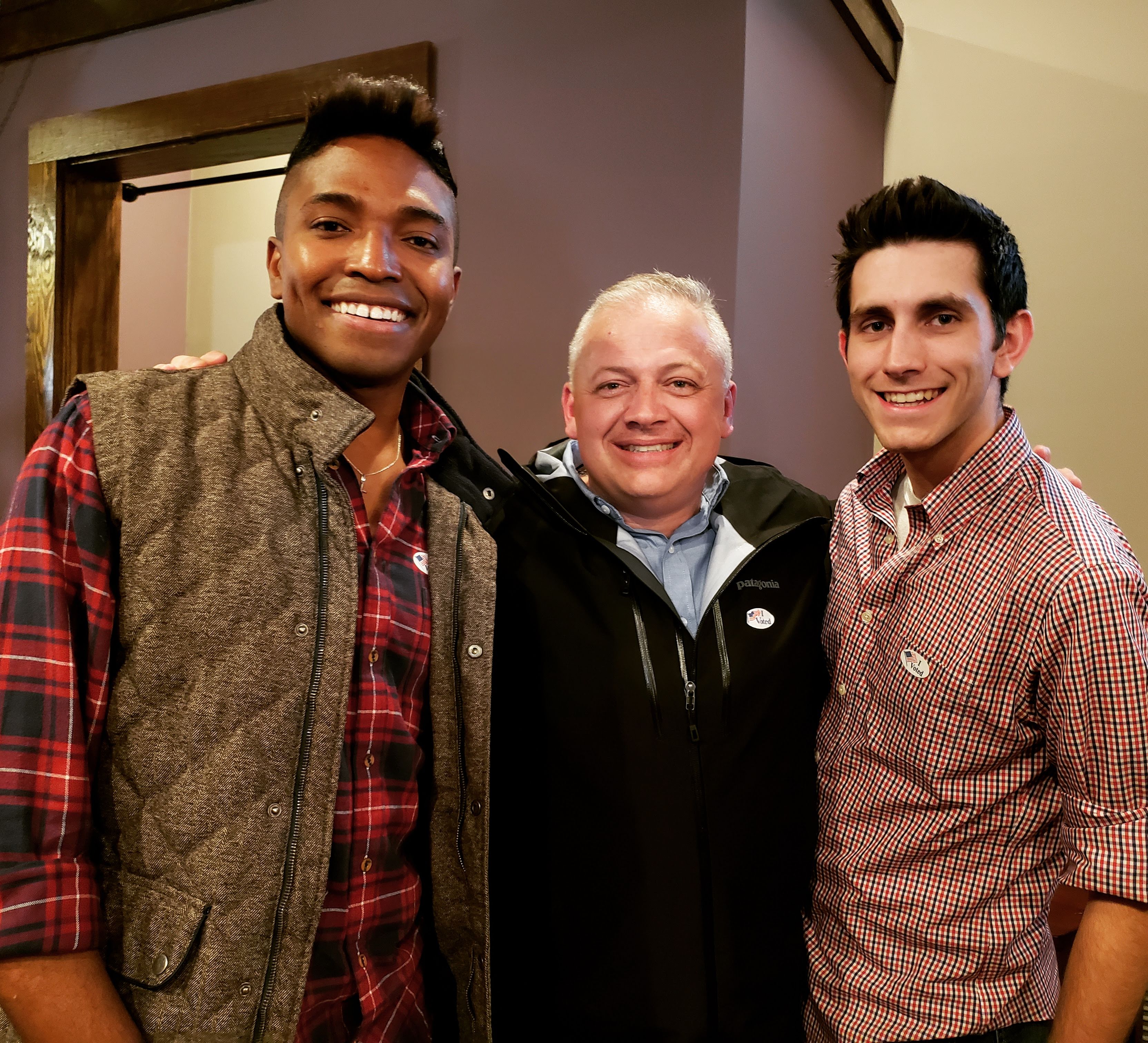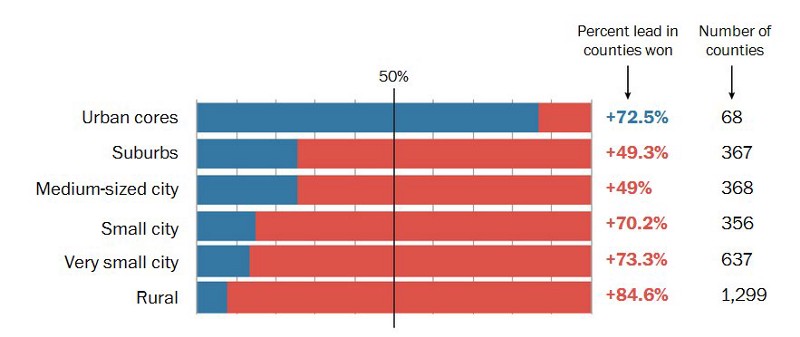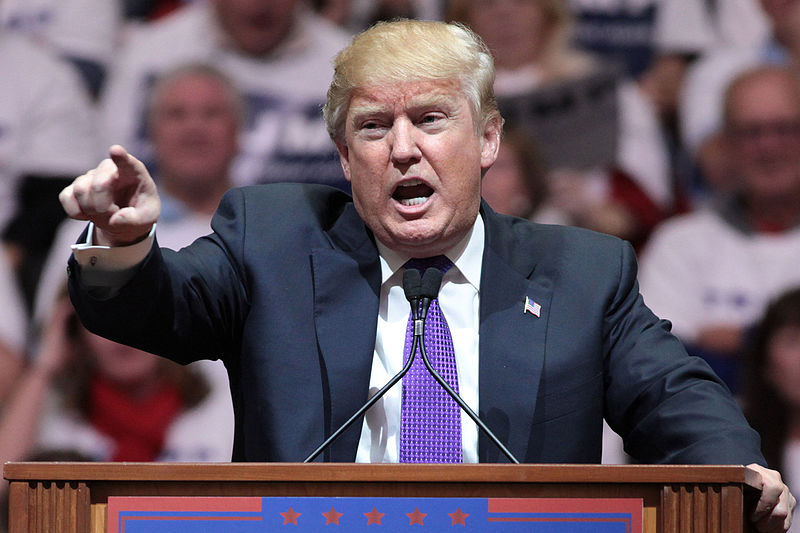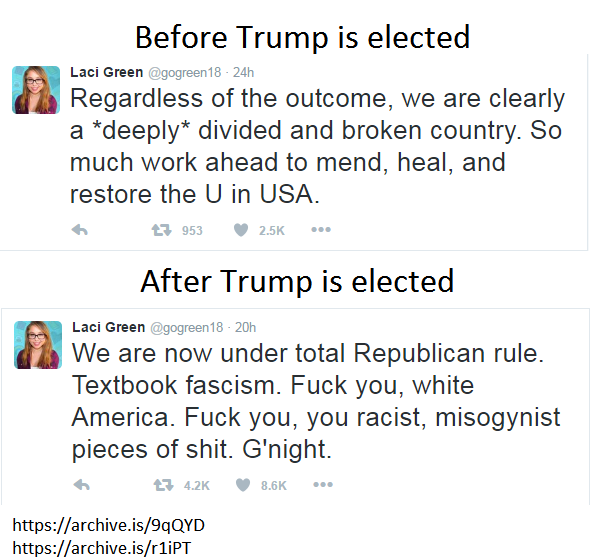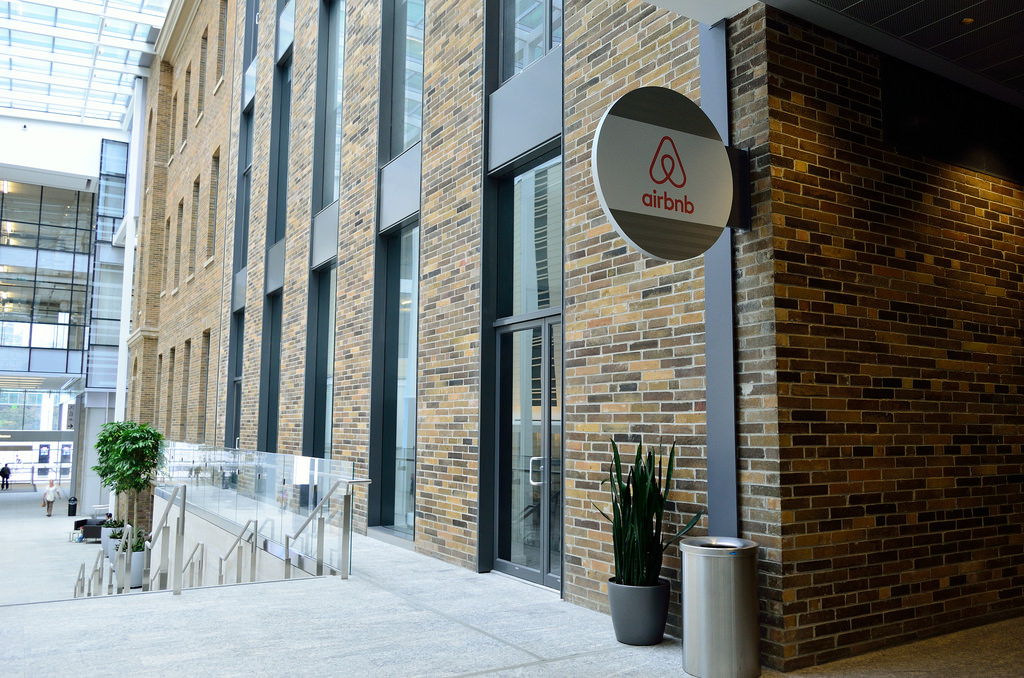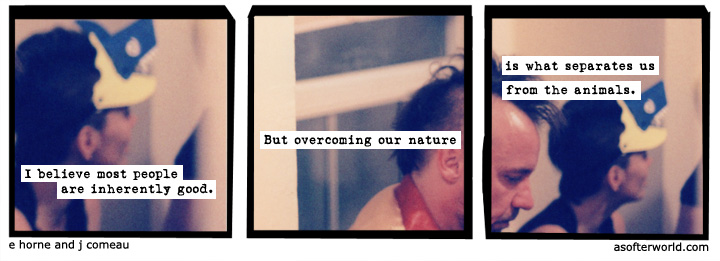“For thus hath the Lord said unto me, Go, set a watchman, let him declare what he seeth.” -Isaiah 21:6, KJV
“Remember us better than we are.” -Vincent Brand to Caliban, Penny Dreadful
A few friends have asked about my thoughts on the latest “racially charged” national controversies—which is not terribly surprising; I’m a politically active black conservative who managed to turn even my own wedding into a controversy—and I’m going to dust off this old medium to gather my thoughts in one hopefully coherent place.
For starters, I must confess it sometimes takes me a second to remember which outrage we’re even talking about.
There was the infuriating abuse and death of George Floyd in Minneapolis that directly triggered ongoing protests, riotous destruction, and curfews across the country. What’s especially salient about this misconduct is the video of an officer who is clearly unconcerned about being videotaped with his knee on a restrained man’s throat—and his law enforcement colleagues plainly finding nothing concerning enough about the situation to intervene. As many have put it, if this is how law enforcement behaves when they know they’re being recorded, how much more awful must they be when they know (or think) they’re not. This is what qualified immunity impunity looks like.
Speaking of qualified immunity unaccountably overzealous policing, there was the recent murder of Breonna Taylor. In case you missed it, she was an innocent woman whom Louisville police killed after her boyfriend understandably invoked his Second Amendment rights while calling the police for help (bless his heart) to defend the couple against an apparent home invasion by unannounced police who couldn’t be bothered to check the details of their no-knock warrant. If there were any substantive accountability for such things, they might have bothered.
There was the earlier incident of white vigilantes (including a former law enforcement officer, because of course) in Coastal Georgia (a region where I have deep ancestral roots) chasing down and killing Ahmaud Arbery, allegedly because of months-old robberies to which no produced evidence connects him. It took national outrage to get anywhere with that prosecution, and the recused law enforcement officials who declined to prosecute their buddies, the McMichaels apparently still don’t see what all the fuss is about. Because of course.
And there was the thankfully nonlethal (talk about lowering the bar) but still troubling case of Amy Cooper. For viewers just tuning in, that woman stared down a camera and employed the classic “crying white lady” tactic to sic the police on a black man in New York City for having the audacity to ask her to follow clearly posted (and not unreasonable) rules that apply to everybody else.
After watching Minnesota police arrest a CNN crew live on air for lawfully reporting on protests against imperious police misconduct, I posted this comment on Facebook:
I hate violence. I’m repulsed by riots. I detest looting. I have every sympathy for the difficult task of restoring order amid violent chaos.
Having said that, I have some questions, which I ask sincerely and respectfully, and would appreciate a sincere and respectful answer to:
What is one to do when the progenitors of violent chaos are precisely the people charged with keeping the peace and protecting the innocent? What is one to do when the fearsome powers entrusted with the government monopoly on violence to protect us are fundamentally untrustworthy? What are we to do when the reasonable exercise of any core civil right–no matter how fundamental, no matter how well enshrined in the First, Second, or Fourteenth amendments to the U.S. Constitution–is met with violence from the very government ostensibly bound by and existing for the protection of our civil rights?
What are we to do? What will you do?
I would love and deeply appreciate a compelling answer to these questions. I’m no extremist, but watching this video makes me want to burn down everything those people ever loved.
I pose these questions now to everybody reading this (and thank you for staying with me this far), because they matter. Some of these issues really do transcend race. Police brutality and misconduct against black people are very much a product of a broken system that refuses to hold law enforcement responsible for its wrongdoing, which afflicts and terrorizes people of all races, even if unequally. If we could somehow fix the racial dynamics in policing, that would in no way mitigate the need to abjure qualified immunity, effect more reliable and present video recording, make crime labs independent of law enforcement officials who rely on them, and so on. At the same time, the need to fix problems that transcend race should not be an excuse to avoid addressing the issue of race where it remains a problem.
The paroxysms of rage that have flowed from these incidents, and the narratives they feed, are as viscerally understandable as they are ineffably exhausting. In a very real sense, there’s almost nothing new to say, beyond the minute specifics of this or that incident, because we’ve all been here before. Well, we “all” in the sense that many of us lack the luxury of ignoring or “moving on” from these kinds of things because even when we think we can, we find that the way we interact with other people and the world has irreversibly changed somehow—and many others are now quite practiced in finding ways to make these things about anything other than larger issues that have a lot to do with race.
A lot of folks like to think of themselves as not having “a racist bone” in their bodies, whatever that means. We all want to be the heroes in our stories, and being “colorblind” or “not caring” about [insert demographic trait] has a seductive appeal to the better angels of our nature that allow us to believe the best about ourselves, our peers, and the systems that have afforded us our (real and potential) successes, such as we know them. And anway, isn’t that what MLK was all about? (Spoiler alert: No.)
Bearing no ill will toward black people or other minorities—and not actively doing any harm that you recognize—is perfectly compatible with being an integral part of the profoundly evil dynamics that killed or threatened people like George Floyd, Breonna Taylor, Ahmaud Arbery, and Christian Cooper. These things don’t happen in a vacuum, nor do they spring sui generis from the minds of peculiarly evil people who were inexplicably, just the day before yesterday, members in good standing of their (probably mostly white) communities.
These things start small, but they are everywhere taught and enforced, often in subtle but persistent ways. People don’t “naturally,” “innocently,” or “accidentally,” cross the street when they see a black person on the sidewalk or tense up when a black couple strolls past them or find themselves in glaringly all-white (or nearly so) friend groups in ethnically diverse environments. They learn these habits from the same social conditioning that led Amy Cooper (no known relation to Christian) to understand that it would matter that she felt threatened by “an African American man” and was putting on a show of crying—and that the man she was threatening with this farce would know, without needing to be told, how and why it mattered.
I’m angry—well enraged and exhausted, to be honest—about all of these incidents that are currently captivating the news cycle, and we could fill vast libraries with books explaining why. But in lieu of the time for all that, I’ll attempt the simpler project of explaining, as succinctly as I can (which is to say, not very), how I came to start noticing when I was one of, if not the only, black people in a space, what that has to do with these controversies, and what I think we can take from all that.
Although I experienced it on occasion, I didn’t understand racism all that well as a child, because I grew up in about as diverse and integrated (both are critical) an environment as probably exists on a large scale in America: the U.S. Army community. Perhaps unlike the leadership of any other major employers, the share of commissioned officers in the U.S. Army who are black or Asian American is roughly the same as each group’s share of the overall U.S. population, according to the Department of Defense. My father has been an Army officer for well over a decade, but for nearly all of my childhood, he was enlisted—a population that’s even more diverse than the officer corps. (Yes, this means nonwhite soldiers are more likely to be enlisted than officers, but I’ll hazard a guess that the disparity is weaker in the Army than just about any employer of comparable size.) The Army isn’t the most diverse overall of the Armed Forces (that would be the Navy), but its leadership (i.e., officers, especially generals, and senior NCOs) noticeably is.
This meant that I grew up in a world relatively divorced from many social “cues” that teach people the kinds of things Amy Cooper and Christian Cooper learned about race. Army bases largely lacked an obvious black or Hispanic underclass driving taxis, working drive-thrus, waiting tables, etc. There was no “ghetto” or “hood.” Kids largely got their clothes, food, and supplies from the same places—the Post Exchange (PX), Commissary, or malls near base—lived in the same neighborhoods, had parents working for the same employers, and had more or less the same contemporary cultural references. Multiracial kids were (and are) common, as were (and are) interracial relationships, like my own and a large number of my friends.
It’s not that race didn’t matter, or that we never saw or thought about it. It did, and we did. Certain incidents from that era (like a couple of racist middle-school teachers from the West Coast who apparently never learned how to “deal” with black people) still haunt me. I also want to make clear that I am not talking about the experience of being a soldier—which I only know vicariously and is profoundly different—but only an Army brat, i.e., a dependent child who grew up in the world the Army built for its soldiers and their families. But I didn’t experience, as an Army brat, a dynamic of persistent racial separation and antagonism (subtle and overt) that led me to believe that my friends of different racial backgrounds had any reason to see or experience the world fundamentally differently.
This all changed in college and the civilian world I graduated into after. Before college, I seldom found myself as the only black guy in a crowd, and it was something I seldom thought about. In college and after, this was common, and it kept coming up until I began to notice it. Before college, I had little direct experience of a black working class overseen by a mostly white managerial class. At Yale and in New Haven, this was the norm. Before college, most of the black kids weren’t sitting together in the cafeteria, keeping largely to themselves (although some did). At Yale, many did, and it was enough of a thing to keep coming up across all four years of my time there. Before college, I thought the police were my friends and knew some military police personally. After college, I’ve come to distrust law enforcement viscerally and know that I should never talk to the police. Before college, I seldom had the sense or understood what folks meant when they said that “such and such” was a “white space.” By the time I left Yale, and certainly in the world after, I came to know exactly what folks mean by that.
What is it that they mean? A black friend, whom I met when we were both Ivy League undergrads and recently got an MBA from the University of Chicago Booth School of Business, put it this way, on the topic of the incident in Manhattan’s Central Park:
#AmyCooper was a “Head of” – level person at Franklin Templeton and she went to Chicago Booth for business school.
So when we say [we] can’t get ahead in our careers, it may be because there is an Amy running our department…
The “Amys running our department” are key (but not the only) progenitors of “white spaces.” They’re the aforementioned people crossing the street, tensing up in a space, clutching their wallet, or “just checking in” when a black person arrives on the scene—or even suggests he or she might be thinking about arriving anywhere that “Amy” thinks she (or he) might wish to belong and do as they will. They are the media and political elites who wax poetic about “justice,” Ta-Nehisi Coates, Donald Trump, or public schools while living in mostly white neighborhoods, sending their kids to mostly white schools, and slipping fluently into “coded” and patronizing language (at best) when they encounter minorities whose political, cultural, social, or other views don’t align with what they find “typical.”
The “Amys running our department” are the white gays, from D.C. to San Francisco, whose social (and social media) presence is reliably a sea of white faces, but will have you know they would have voted for Barack Obama a third time. They are my effectively segregationist MBA peers at UVA Darden whom I can refer to in the vaguest terms and still find that just about any minority classmate knows exactly whom I’m talking about (as I expect is happening with any of them reading this right now). But amid their all-white (or nearly so) socializing, networking, dating, and, well, segregating, those peers would have you know they tutor black kids, donate to good causes, and care about the “real” injustices and diversity out there. Some of them might even have posted a status or two about the incidents we’re here discussing. They can also be relied upon never to lift a finger to make sure their black peers feel more welcome and included, if it involves any inconvenience for them.
This is not to say they are all bad people. Were I socialized as they were, looking as they do, I might well think and behave as they do. There, but for the grace of God, go I. But again, people don’t just find themselves in reliably segregated spaces in diverse environments—whether socially, professionally, or otherwise—by accident. You get to such spaces by making choices. You choose to say hi to the white classmates sitting around you, and not the black ones. You choose to walk up to white people at the bar or in a party, but not the brown ones. You choose to take offense or ascribe more uncharitable motives to the comments or actions of black people in a given situation than you would have or do to white people. You choose to find reasons why people who don’t look or perhaps sound like you don’t “fit” into your office or church or social group, which just so happens to produce demographic homogeneity that makes minorities feel unwelcome.
The general public may never know how the real Amy Cooper treated the black people in her life, but there are reasonable, little things we all can do to stop being or avoid becoming an “Amy running our department.” Among them: notice when the demographic dynamics around you are out of sync with your environment, and change it. Speaking only for me, I don’t care for “white guilt” or find much lasting value in apologies for crimes the person speaking didn’t commit. I don’t generally care what charities you donate to, politicians you vote for, or “causes” you support. (But we can and should talk about those in other contexts!) What matters to me, in this context, is what we do with our direct spheres of influence.
Sometime after I started noticing the many forms of racial segregation that permeate “meritocratic” American life, I started periodically asking myself a series of questions to help maintain a sort of focus. Do I have genuinely good relationships with people of different racial and other backgrounds? Would they say so, if asked, and I wasn’t there? Am I reaching out to classmates or friends who aren’t professionally “useful” to me? Am I as generous and charitable with people I’m less attracted to? Am I holding people to standards I wouldn’t want held against me? Am I being deliberate about changing things I don’t like about my environment? Am I getting the kind of feedback I need to improve for real, rather than just in my own head (or in the eyes of people who might share in my contribution to underlying problems)? What am I willing to do to become the kind of person I want to be? What am I not? Why?
Perhaps others will find this type of periodic introspection helpful. Perhaps not. What I can say is that far too many of us have far more in common with Amy Cooper or those police officers than we like to admit. The better we are at recognizing and owning the banal, petty ways in which people like “us” become (or, indeed, already are) people like “them,” the better we may get at correcting for and even preventing such wrongs. That is, perhaps, the best we can hope for at this point. It’s either that, or the riots.
